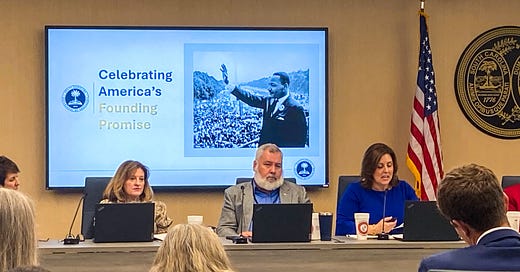SC committee votes to remove seven books statewide
It retained, as expected, three "classics," and postponed a vote on Ellen Hopkins' CRANK.
Update: the week after I wrote this, the full board voted to agree with the subcommittee’s decisions. Again without reading the books or examining additional language, the Board voted to retain the three “classics,” ban seven books from every public school in the state, and made no decision about Ellen Hopkins’ CRANK. A few Board members did express concerns about the process. For example, Chair David O’Shields seemed concerned that a subcommittee was preemptively challenging books, rather than waiting for challenges to come from parents.
Today, the South Carolina Instructional Materials Review Committee (part of the State Board of Education) met to discuss the first round of books challenged at the state level. (All members were present except board member Cheryl Collier.) The meeting revealed a lot about the actual processes being used to choose and evaluate books for potential removal.
In the end, the committee voted to remove all but one of the non- “classic” texts (1984, Romeo an…
Keep reading with a 7-day free trial
Subscribe to Other Duties (as assigned) to keep reading this post and get 7 days of free access to the full post archives.



